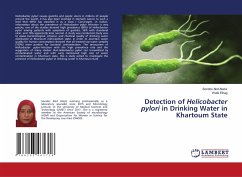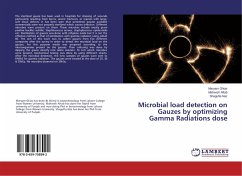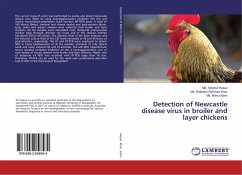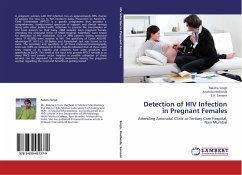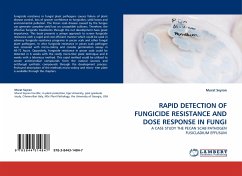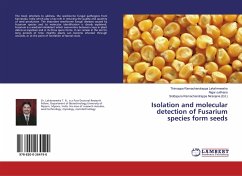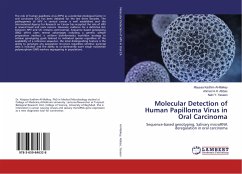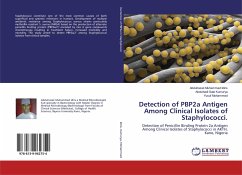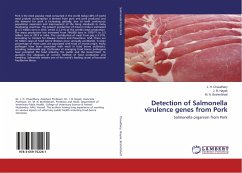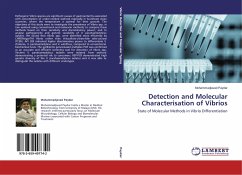
Detection ¿and ¿Molecular ¿Characterisation ¿of ¿Vibrios
State of Molecular Methods in Vibrio Differentiation
Versandkostenfrei!
Versandfertig in 6-10 Tagen
36,99 €
inkl. MwSt.

PAYBACK Punkte
18 °P sammeln!
Pathogenic Vibrio species are significant causes of gastroenteritis associated with consumption of under-cooked seafood especially in Southeast Asian countries, where the temperature is optimal for their growth. The objectives of this study were to investigate the prevalence of Vibrio spp. in raw seafood using conventional and molecular methods; to compare these methods based on their sensitivity and discriminatory power; and to analyse pathogenicity and genetic variability of V. parahaemolyticus isolates. We found that Vibrio spp. were identified more efficiently by CHROMagarTM Vibrio rather ...
Pathogenic Vibrio species are significant causes of gastroenteritis associated with consumption of under-cooked seafood especially in Southeast Asian countries, where the temperature is optimal for their growth. The objectives of this study were to investigate the prevalence of Vibrio spp. in raw seafood using conventional and molecular methods; to compare these methods based on their sensitivity and discriminatory power; and to analyse pathogenicity and genetic variability of V. parahaemolyticus isolates. We found that Vibrio spp. were identified more efficiently by CHROMagarTM Vibrio rather than thiosulfate-citrate-bile salts-sucrose (TCBS). API 20E indicated higher discriminatory power to differentiate V. cholerae, V. parahaemolyticus and V. vulnificus, compared to conventional biochemical tests. The gyrB/pntA genes-based multiplex PCR was confirmed as an accurate and efficient screening tool for detection of Vibrio spp. Virulent V. parahaemolyticus isolates were isolated fromseafood demonstrating a potential risk to consumers. REP-PCR demonstrated high genetic diversity of the V. parahaemolyticus isolates and it was able to distinguish the isolates with different virulotypes.



